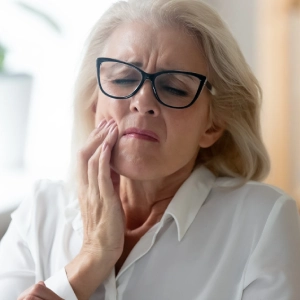Dental emergencies can occur unexpectedly, causing discomfort and concern. But, understanding "What are the Common Causes of Dental Emergencies?" will help recognize potential issues and seek timely treatment. Various factors can lead to urgent dental care needs, from sudden toothaches to accidents resulting in oral trauma.
In this blog, we will look into the common causes of dental emergencies, providing insights to help you better safeguard your oral health.
Causes of Dental Emergencies and How to Prevent Them
Dental emergencies can arise unexpectedly, from tooth decay to gum disease and chipped teeth. While maintaining good dental hygiene is paramount for oral health, being prepared to handle emergencies can prevent lasting damage. What are the Common Causes of Dental Emergencies, and How to address them? Quick response and appropriate first aid treatment can prevent long-term damage and promote oral health restoration. Read on to learn more.
7 Common Dental Emergencies
Toothache
Experiencing pain in your tooth can indicate various conditions, such as tooth decay. While some toothaches can be managed without emergency intervention, certain signs, like swelling, require immediate attention. Avoid using common remedies like aspirin or other pain relievers, as they can cause tissue damage when in contact with the affected gums. Instead, apply a cold compress to the outside of your cheek and contact a dental clinic for emergency care. After treatment, your dentist will emphasize the importance of maintaining basic oral hygiene to prevent cavities, tooth decay, and other dental issues.
Chipped or Broken Teeth
Did you accidentally bite down on something too hard? A chipped or broken tooth affects your smile and can cause discomfort. If there is bleeding, clean your mouth with warm water and cover the affected area with gauze. Then, use a cold compress on the affected part of your face to reduce swelling and alleviate pain. Your dentist will advise you to refrain from biting into hard or crunchy meals, playing sports, and engaging in other activities that could cause your teeth to chip or break while you seek emergency dental care.
Knocked Out Tooth
Handle a chipped or broken tooth carefully. Pick it up by the visible part in your mouth and rinse off any dirt on the root. Avoid scrubbing or removing any attached tissue. Try putting the tooth back in place, but don't force it. The sooner, preferably within an hour, the better the chance of saving it. If you can't reinsert it, store it in milk or water with a pinch of salt until you reach a dental clinic for emergency care.
Crowns and Filings
Dental Crowns and fillings are crucial for restoring damaged teeth to their normal function and appearance. If they break, immediate treatment is necessary to prevent additional damage or infection. You can attempt a temporary remedy while you wait for emergency dental care: insert a piece of sugar-free gum into the cavity. However, avoid attempting to fix the tooth yourself to prevent further damage. You can also save the broken restoration in a zip-top bag and take it to the dentist's clinic for reapplication or to be fitted with a new crown.
Broken Orthodontic
Braces can be uncomfortable and disrupt the progress of aligning your teeth. If a wire breaks and causes discomfort, gently push it back into a comfortable position and cover the end with orthodontic wax. Avoid cutting the wire, as it may lead to swallowing and further complications.
Abscess
Abscesses in the mouth, particularly around the tooth root or between teeth and gums, are concerning infections. If left untreated, they can spread to nearby teeth, gums, and even other parts of the body. Unsure if you have an abscess? Look for a painful, pimple-like swelling on your gums. If so, use ice to relieve the swelling temporarily and rinse your mouth with a mild water solution.
Bleeding and Pain after Tooth Extraction
After tooth extraction, bleeding and pain are common, but if these symptoms persist beyond an hour, contact your dentist immediately. In the meantime, you can place a thick gauze pad on the extraction site and apply some pressure by gently biting down on the gauze. Avoid rinsing, drinking, eating, as well as sucking, spitting, and smoking until further instructions from your dentist.
Tips for Preventing Dental Emergencies
- Wear a Mouthguard: If you're into sports, protect your smile with a mouthguard. Prevent potential tooth injuries during rough plays by wearing a mouthguard before hitting the court or field.
- Be Mindful of Your Diet: Be cautious about what you eat to avoid cracking or chipping a tooth. Hard candies and tough meats can easily damage otherwise strong teeth. Think twice before indulging in sugary treats to prevent tooth damage and cavities.
- Avoid Chewing Non-food items: Avoid habits like nail-biting and chewing on non-food items like pen caps, as they can lead to cracked or chipped teeth. Keep your hands busy and chew sugarless gum to redirect these habits while promoting saliva production and cleaning bacteria.
Do you need Emergency Dental Care in Rockledge, FL?
At Sunflower Dental Spa, we're dedicated to restoring your dental health and giving you a smile you can be proud of. Schedule your appointment online today. New patients can call us at (786) 565-5913, and current patients can reach us at (305) 330-9330.
FAQ
What are the most common dental emergencies?
Common dental emergencies include severe toothaches, chipped or broken teeth, knocked-out teeth, abscesses, and injuries to orthodontic appliances like braces.
What actions can lead to dental emergencies?
Dental emergencies can result from various factors such as physical trauma to the mouth, untreated tooth decay or gum disease, biting down on hard objects, sports injuries, and accidents.
How can I prevent dental emergencies?
It is essential to practice good oral hygiene, wear protective gear during sports activities, and avoid chewing on hard objects to prevent dental emergencies.









